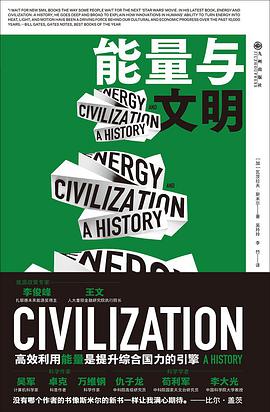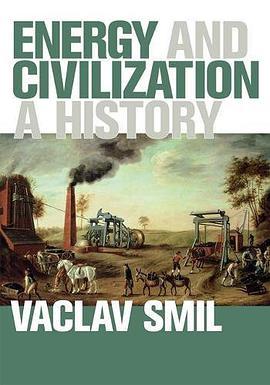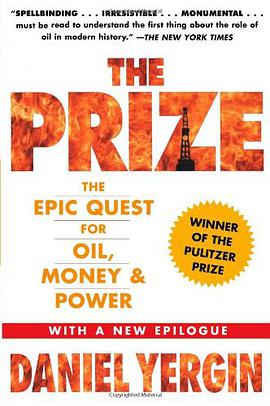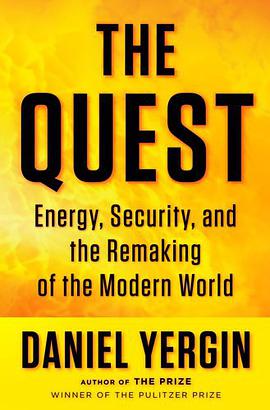能量与文明 豆瓣 Goodreads
Energy and Civilization: A History
作者:
[加] 瓦茨拉夫·斯米尔
/
Vaclav Smil
译者:
吴玲玲
/
李竹
后浪丨九州出版社
2021
- 5
比尔•盖茨2017年度书单图书
高效利用能量是提升综合国力的引擎
华语世界首次引进,加拿大历史学家、科学家瓦茨拉夫•斯米尔能量研究重磅之作
从远古采集社会到化石能源时代,全景展现能量利用与文明进化互相交织的历史
以能量为标尺,对人类社会的进化进行的一次有文化的、精确的分析
“能量是唯一的通用货币”,开篇语振聋发聩,奠定了本书讨论的基调
◎ 编辑推荐
这是一本“无所不包”的大书,既大气磅礴,宏观地回溯了采集社会到油气时代,人类从在恶劣的自然环境下搜寻食物,到创造出足以更改地球面貌的毁灭性武器的壮阔历程,又细致入微,从都江堰的具体建设与规划思路到阿兹特克浮园的天才设计,从冬宫广场上美丽的亚历山大石柱的竖立过程到爱迪生与特斯拉的电流之争。……有趣的小故事,缀满了这部注定不易阅读的著作。不论是想要从能量的角度一窥人类文明史,还是希望看到一本另类的“百科全书”,抑或因对人类的化石能源使用现状感到忧虑而希望找到出路,你都能从本书中得到一些答案。
◎ 内容简介
能量是唯一的通用货币。要想达成任何目标,能量都必不可少。大到改变板块构造的力量,小到微小雨滴的累积侵蚀,能量无处不在。通过将太阳辐射的能量转换为植物质的光合作用,生命得以形成。人类文明的存续更是依赖于各种能量——从化石燃料的采掘到光能发电。本书作者瓦茨拉夫•斯米尔对人类社会的发展与能量的利用之间关系的重要历史作了全面解读,范围上至远古采集社会,近至当今的以化石能源为基础的工业文明。
作为唯一能够系统地利用体外能量的物种,人类利用能量来开发智力、制作种类丰富的器具——从最简单的工具,到现代最先进的内燃机和核反应堆。对化石燃料的利用开启了一个新纪元,对人类的农业、工业、交通运输、战争与武器、信息与通讯、经济、政治、城市化、生活质量和环境等方方面面产生了深远影响。斯米尔的研究是跨学科的,给读者提供了一个权威的、全景式的视角。本书基于斯米尔1994年的《世界历史中的能量》,并作了大量增补和修订。在本书中,斯米尔组织了大量的新材料,这在很大程度上反映了过去二十年中人们在能量研究方面取得的新成果。
◎ 专业推荐
《能量与文明》一书的作者从人类发展进程对能量的依赖谈起,诠释了能量利用对人类文明的作用,提出了一方面需要提高能量的利用效率、合理地利用能量,另一方面是要改善能量的来源,从两个方面推动人类文明的进步。尤其是作者对能量与文明的相互关系做了严谨的思考,期望能量更多用于推动文明的进步,而不是相反。总之,《能量与文明》一书值得能源工作者阅读和回味。
——李俊峰,国家应对气候变化战略研究和国际合作中心原主任、扎耶德未来能源奖终身成就奖得主
这本书回答了一个非常重要的问题——如何客观地衡量一个地区、一个时代的文明水平。全书通过俯视人类的文明史,给出了一个令人信服的答案,那就是使用能量这个标尺。《能量与文明》一书能够让我理解文明如何发展至今,又将向何处去。
——吴军,计算机科学家
这是一本基于扎实研究的心血之作。只知道什么时代的人用什么方式取得能量是远远不够的,高级知识都在细节之中:这种方式和那种方式相比,消耗多少、取得多少、浪费多少,由此产生的社会组织方式的差异是什么?当时的人被能量限制而未必能意识到能量这条线索,我们却可以掌握这个思考维度。
——万维钢,科学作家、得到APP《精英日课》专栏作者
有些读者试图从思想和主义的角度理解文明,但实际上,那些都是被修饰过无数次的说辞。想要拨开各种迷雾,就要从资源、武器、人口上入手。而这三要素都是由能量转换效率、获取能量的成本决定的。这本书,扎实就扎实在这里。
——卓克,科普作者
能量是贯穿宇宙运行、文明演进、社会建构、产业创新的通行货币。这本《能量与文明》揭示的这个道理,令我震撼。全书糅合了历史学家、科学家、工程师、经济学家、社会学家的综合功力,帮助读者在一个全新侧面,重新了解我们所生活的世界及与之互动的社会。
——王文,中国人民大学重阳金融研究院执行院长、国务院参事室金融研究中心研究员
人类社会数千年,如何生产与使用能量始终是最大的主题。在这本书里,作者将人类社会运用能量的轨迹清晰地描述了出来,堪称智者的深邃思考。喜欢思考底层逻辑的你不应该错过。
——仇子龙,中国科学院脑科学与智能技术卓越创新中心高级研究员、神经科学国家重点实验室副主任
《能量与文明》追溯了人类的故事,以及能量是如何被人类发现、生产、使用、食用以及浪费的。能量在很多方面统治着我们人类社会。这是一本细节丰富的书,所以有些人可能会觉得似乎有些出于意料。在书的最后部分,作者总结了能量对文明所有主要领域的影响。这是一本让人类思考自身命运与未来的好书。
——李大光,中国科学院大学教授
作者瓦茨拉夫•斯米尔教授通过一个有趣的角度给我们展示了,人类文明的发展史就是人类控制能量的演化历史。通过详细分析不同历史时期人类能够利用的能源形式,让我们能够更深入地理解能量是如何改变人类文明的发展并且驱动其进步的,很是值得一读。
——苟利军,中国科学院国家天文台研究员、中国科学院大学天文学教授、《中国国家天文》杂志执行总编
在《能量与文明》中,斯米尔深入而广泛地解释了人类将能量转化为热、光和运动的能力方面的创新,是如何在过去一万年中推动我们的文化和经济进步的。——比尔•盖茨
一部充满智慧、饱含怜悯的重要著作。
——《外交》(Foreign Affairs)
他(斯米尔)悄悄塑造了整个世界对能量的看法。
——《科学》(Science)
斯米尔是一个不允许真相被政治遮蔽的作家。
——《纽约书评》(New York Review of Books)
人类所完成的一切都取决于我们获取能量的能力。有关能量如何影响人类文明,瓦茨拉夫•斯米尔是全世界顶尖的研究者。毫无疑问,《能量与文明》将是21世纪有关这一课题的最重要的指南。
——伊恩•莫里斯,历史学家、斯坦福大学古典学教授,《西方将主宰多久》作者
斯米尔的非凡见解为我们阐释了能量在创造文明、维持文明的延续中的核心地位。本书立足于科学,对文明之间的差异保持敏感,内容翔实,是关于这一主题的权威性著作。
——大卫•E. 奈,历史学家,《百年流水线》《电气美国》作者
高效利用能量是提升综合国力的引擎
华语世界首次引进,加拿大历史学家、科学家瓦茨拉夫•斯米尔能量研究重磅之作
从远古采集社会到化石能源时代,全景展现能量利用与文明进化互相交织的历史
以能量为标尺,对人类社会的进化进行的一次有文化的、精确的分析
“能量是唯一的通用货币”,开篇语振聋发聩,奠定了本书讨论的基调
◎ 编辑推荐
这是一本“无所不包”的大书,既大气磅礴,宏观地回溯了采集社会到油气时代,人类从在恶劣的自然环境下搜寻食物,到创造出足以更改地球面貌的毁灭性武器的壮阔历程,又细致入微,从都江堰的具体建设与规划思路到阿兹特克浮园的天才设计,从冬宫广场上美丽的亚历山大石柱的竖立过程到爱迪生与特斯拉的电流之争。……有趣的小故事,缀满了这部注定不易阅读的著作。不论是想要从能量的角度一窥人类文明史,还是希望看到一本另类的“百科全书”,抑或因对人类的化石能源使用现状感到忧虑而希望找到出路,你都能从本书中得到一些答案。
◎ 内容简介
能量是唯一的通用货币。要想达成任何目标,能量都必不可少。大到改变板块构造的力量,小到微小雨滴的累积侵蚀,能量无处不在。通过将太阳辐射的能量转换为植物质的光合作用,生命得以形成。人类文明的存续更是依赖于各种能量——从化石燃料的采掘到光能发电。本书作者瓦茨拉夫•斯米尔对人类社会的发展与能量的利用之间关系的重要历史作了全面解读,范围上至远古采集社会,近至当今的以化石能源为基础的工业文明。
作为唯一能够系统地利用体外能量的物种,人类利用能量来开发智力、制作种类丰富的器具——从最简单的工具,到现代最先进的内燃机和核反应堆。对化石燃料的利用开启了一个新纪元,对人类的农业、工业、交通运输、战争与武器、信息与通讯、经济、政治、城市化、生活质量和环境等方方面面产生了深远影响。斯米尔的研究是跨学科的,给读者提供了一个权威的、全景式的视角。本书基于斯米尔1994年的《世界历史中的能量》,并作了大量增补和修订。在本书中,斯米尔组织了大量的新材料,这在很大程度上反映了过去二十年中人们在能量研究方面取得的新成果。
◎ 专业推荐
《能量与文明》一书的作者从人类发展进程对能量的依赖谈起,诠释了能量利用对人类文明的作用,提出了一方面需要提高能量的利用效率、合理地利用能量,另一方面是要改善能量的来源,从两个方面推动人类文明的进步。尤其是作者对能量与文明的相互关系做了严谨的思考,期望能量更多用于推动文明的进步,而不是相反。总之,《能量与文明》一书值得能源工作者阅读和回味。
——李俊峰,国家应对气候变化战略研究和国际合作中心原主任、扎耶德未来能源奖终身成就奖得主
这本书回答了一个非常重要的问题——如何客观地衡量一个地区、一个时代的文明水平。全书通过俯视人类的文明史,给出了一个令人信服的答案,那就是使用能量这个标尺。《能量与文明》一书能够让我理解文明如何发展至今,又将向何处去。
——吴军,计算机科学家
这是一本基于扎实研究的心血之作。只知道什么时代的人用什么方式取得能量是远远不够的,高级知识都在细节之中:这种方式和那种方式相比,消耗多少、取得多少、浪费多少,由此产生的社会组织方式的差异是什么?当时的人被能量限制而未必能意识到能量这条线索,我们却可以掌握这个思考维度。
——万维钢,科学作家、得到APP《精英日课》专栏作者
有些读者试图从思想和主义的角度理解文明,但实际上,那些都是被修饰过无数次的说辞。想要拨开各种迷雾,就要从资源、武器、人口上入手。而这三要素都是由能量转换效率、获取能量的成本决定的。这本书,扎实就扎实在这里。
——卓克,科普作者
能量是贯穿宇宙运行、文明演进、社会建构、产业创新的通行货币。这本《能量与文明》揭示的这个道理,令我震撼。全书糅合了历史学家、科学家、工程师、经济学家、社会学家的综合功力,帮助读者在一个全新侧面,重新了解我们所生活的世界及与之互动的社会。
——王文,中国人民大学重阳金融研究院执行院长、国务院参事室金融研究中心研究员
人类社会数千年,如何生产与使用能量始终是最大的主题。在这本书里,作者将人类社会运用能量的轨迹清晰地描述了出来,堪称智者的深邃思考。喜欢思考底层逻辑的你不应该错过。
——仇子龙,中国科学院脑科学与智能技术卓越创新中心高级研究员、神经科学国家重点实验室副主任
《能量与文明》追溯了人类的故事,以及能量是如何被人类发现、生产、使用、食用以及浪费的。能量在很多方面统治着我们人类社会。这是一本细节丰富的书,所以有些人可能会觉得似乎有些出于意料。在书的最后部分,作者总结了能量对文明所有主要领域的影响。这是一本让人类思考自身命运与未来的好书。
——李大光,中国科学院大学教授
作者瓦茨拉夫•斯米尔教授通过一个有趣的角度给我们展示了,人类文明的发展史就是人类控制能量的演化历史。通过详细分析不同历史时期人类能够利用的能源形式,让我们能够更深入地理解能量是如何改变人类文明的发展并且驱动其进步的,很是值得一读。
——苟利军,中国科学院国家天文台研究员、中国科学院大学天文学教授、《中国国家天文》杂志执行总编
在《能量与文明》中,斯米尔深入而广泛地解释了人类将能量转化为热、光和运动的能力方面的创新,是如何在过去一万年中推动我们的文化和经济进步的。——比尔•盖茨
一部充满智慧、饱含怜悯的重要著作。
——《外交》(Foreign Affairs)
他(斯米尔)悄悄塑造了整个世界对能量的看法。
——《科学》(Science)
斯米尔是一个不允许真相被政治遮蔽的作家。
——《纽约书评》(New York Review of Books)
人类所完成的一切都取决于我们获取能量的能力。有关能量如何影响人类文明,瓦茨拉夫•斯米尔是全世界顶尖的研究者。毫无疑问,《能量与文明》将是21世纪有关这一课题的最重要的指南。
——伊恩•莫里斯,历史学家、斯坦福大学古典学教授,《西方将主宰多久》作者
斯米尔的非凡见解为我们阐释了能量在创造文明、维持文明的延续中的核心地位。本书立足于科学,对文明之间的差异保持敏感,内容翔实,是关于这一主题的权威性著作。
——大卫•E. 奈,历史学家,《百年流水线》《电气美国》作者



